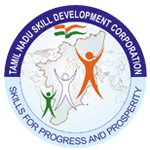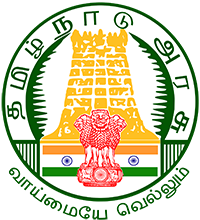SKILL CERTIFICATION UNDER RECOGNITION OF PRIOR LEARNING (RPL)
What is RPL?
Recognition of Prior Learning commonly known as RPL refers to an assessment process used to evaluate a
person’s
existing skill sets, knowledge and experience gained either by formal, non-formal or informal learning.
Why RPL?
It aims to align the competencies of the un-regulated workforce of the country to the standardized National
Skills Qualification Framework (NSQF)
- To enhance the employability opportunities of an individual
- To provide alternative routes to higher education
- To provide opportunities for reducing inequalities based on favouring certain forms of knowledge over others
Partnerships
TNSDC has entered into partnerships with Nippon Paint and the Fisheries Department.
Nippon Paint
To train and certify 20,000 painters under the RPL scheme.
Fisheries Department
To train fishermen in marine capture aquaculture.
Achievements
TNSDC has so far certified
58,969+ workers under RPL in various sectors. Sector-wise numbers are as follows:
| Construction | 13,418 | Logistics | 2,580 |
| Apparel | 11,280 | Domestic | 5,000 |
| Automobile | 2,640 | Paints | 12,930 |
| Hospitality | 260 | Textile | 4,687 |
| Leather | 1,640 | Gem & Jewellery | 4,534 |
Process of RPL
- Mobilization This involves activities that identify and mobilize potential candidates who are skilled/semi-skilled but uncertified.
- Counselling and Pre-screening Potential candidates are counselled on how the certification will transform their lives. Pre-screening helps to ascertain job roles based on prior knowledge and existing skills.
- Orientation Candidates are provided 12 hours of orientation that include domain specific training, soft skills training and entrepreneurship. They are also given an idea on the assessment procedures.
- Final Assessment Assessment is conducted by the respective Sector Skill Council (SSC).
- Certification once assessed, successful candidates are awarded RPL certification by TNSDC and the SSC.








